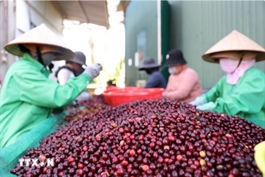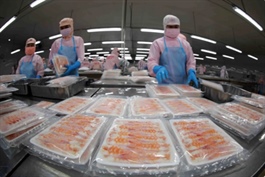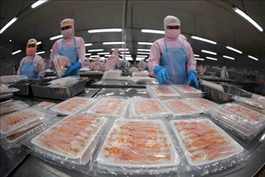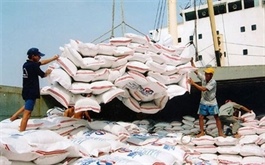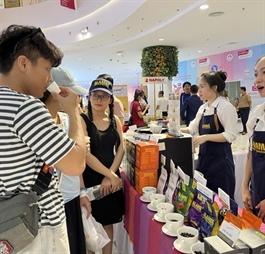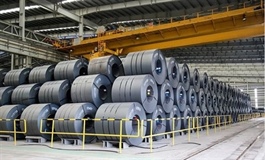Vietnam’s high-yield rice causes price drop in Thailand: Thai association
Vietnam’s high-yield rice causes price drop in Thailand: Thai association
The Thai Agriculturist Association (TAA) recently reported a sharp decline in the rice redemption price at the central market in Thailand, primarily due to oversupply caused by farmers cultivating Vietnam's high-yield rice variety, Jasmine 85.
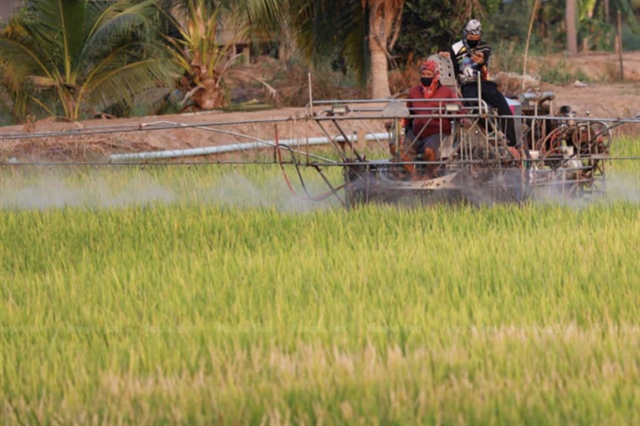
Farmers are seen working on a rice field in Thailand. Photo: Bangkok Post |
The Bangkok Post reported on Tuesday, citing the TAA, that the rice redemption price at the central market dropped in recent times from the highest level in a decade, which reached up to US$354 per ton during the first crop season two months ago, attributed to high demand, although the exact extent of the decline was not specified.
The sharp fall has caused farmers to fret as they are preparing for the second crop season that will start within April, according to TAA president Pramote Charoensilp.
One of the main causes of the price drop was believed to be the popularity of the Vietnamese rice variety Jasmine 85, which has been recently grown by Thai farmers to leverage its advantages, including short production time, high yield, and good resilience to weather.
Despite the TAA urging farmers to refrain from cultivating foreign rice varieties to mitigate adverse effects on local cultivars, the planting of this particular cultivar has commenced.
The association also warned Thai farmers not to cultivate this variety, as both rice millers and exporters shy away from it.
This type produces rice that is dull-white hue and easily damaged during the milling process, according to the Thai Rice Mill Association.
It is estimated that 160,000 hectares of rice plantations in Thailand will grow Jasmine 85 in the upcoming season, according to the TAA.
Director general of the Thai Rice Department (RD) Natthakit Khongthip said that no Vietnamese rice cultivar has been registered with this department yet.
“Thailand does not produce enough rice grains to meet farmers’ needs. That causes them to seek foreign alternatives, especially the Vietnamese variety, which provide a high-volume yield but require a shorter farming time,” Natthakit was quoted by the Bangkok Post as saying.
He said the RD is trying to improve local varieties to help Thai rice regain its popularity, but many challenges lie aheadd.
Pramote stated that the TAA has called upon Thailand’s Department of Internal Trade to investigate additional factors contributing to the price decline and to initiate a probe into the origins of foreign rice varieties being cultivated within the country.








